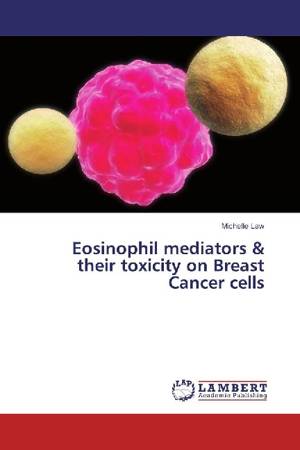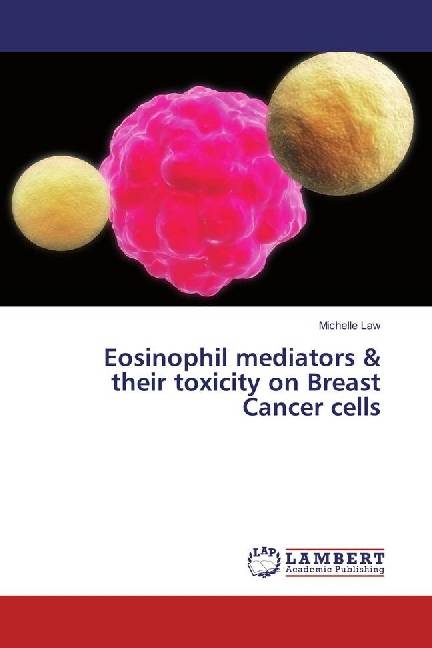
- Afhalen na 1 uur in een winkel met voorraad
- Gratis thuislevering in België vanaf € 30
- Ruim aanbod met 7 miljoen producten
- Afhalen na 1 uur in een winkel met voorraad
- Gratis thuislevering in België vanaf € 30
- Ruim aanbod met 7 miljoen producten
Zoeken
€ 49,45
+ 98 punten
Omschrijving
Eosinophils are known for their role as anti-helminthic agents & as inflammatory effectors in allergic hypersensitivity &bronchial asthma. Their granules contain extremely cytotoxic proteins which are responsible for damage to the normal epithelia, & contribute to allergic responses & the onset of asthma. Preliminary observations had shown tumor cell growth was inhibited by a crude eosinophil protein extract & partially inhibited by IL-4 & TNF- ; also produced by eosinophils. Characterization of the protein isolated from the granules confirmed its identity as that of the eosinophil major basic protein as demonstrated by silver stain & western blot. The growth of both cancer cell lines was significantly inhibited by the protein isolate alone & in combination with select inflammatory & non-inflammatory cytokines. Additional results showed that the combination of protein isolate and selected cytokines differentially down-regulated the expression of oncogenes in the cell lines. The results demonstrate the functional potency of this eosinophil granular mediator in inhibiting in vitro tumor cell growth & suggest an effector role for this cell in the host response against breast cancer.
Specificaties
Betrokkenen
- Auteur(s):
- Uitgeverij:
Inhoud
- Aantal bladzijden:
- 108
- Taal:
- Engels
Eigenschappen
- Productcode (EAN):
- 9783659936524
- Uitvoering:
- Paperback
- Afmetingen:
- 150 mm x 220 mm

Alleen bij Standaard Boekhandel
+ 98 punten op je klantenkaart van Standaard Boekhandel
Beoordelingen
We publiceren alleen reviews die voldoen aan de voorwaarden voor reviews. Bekijk onze voorwaarden voor reviews.











